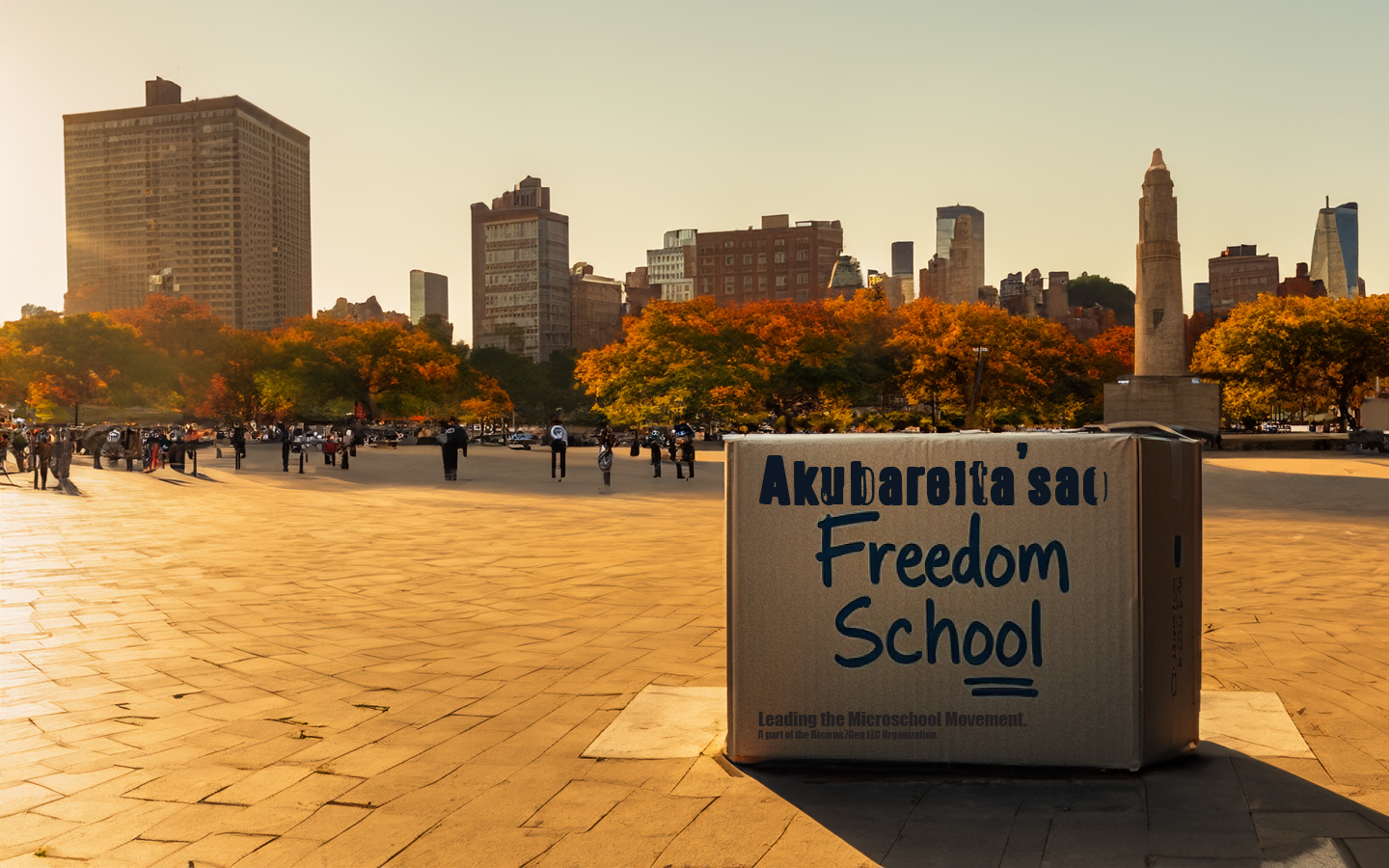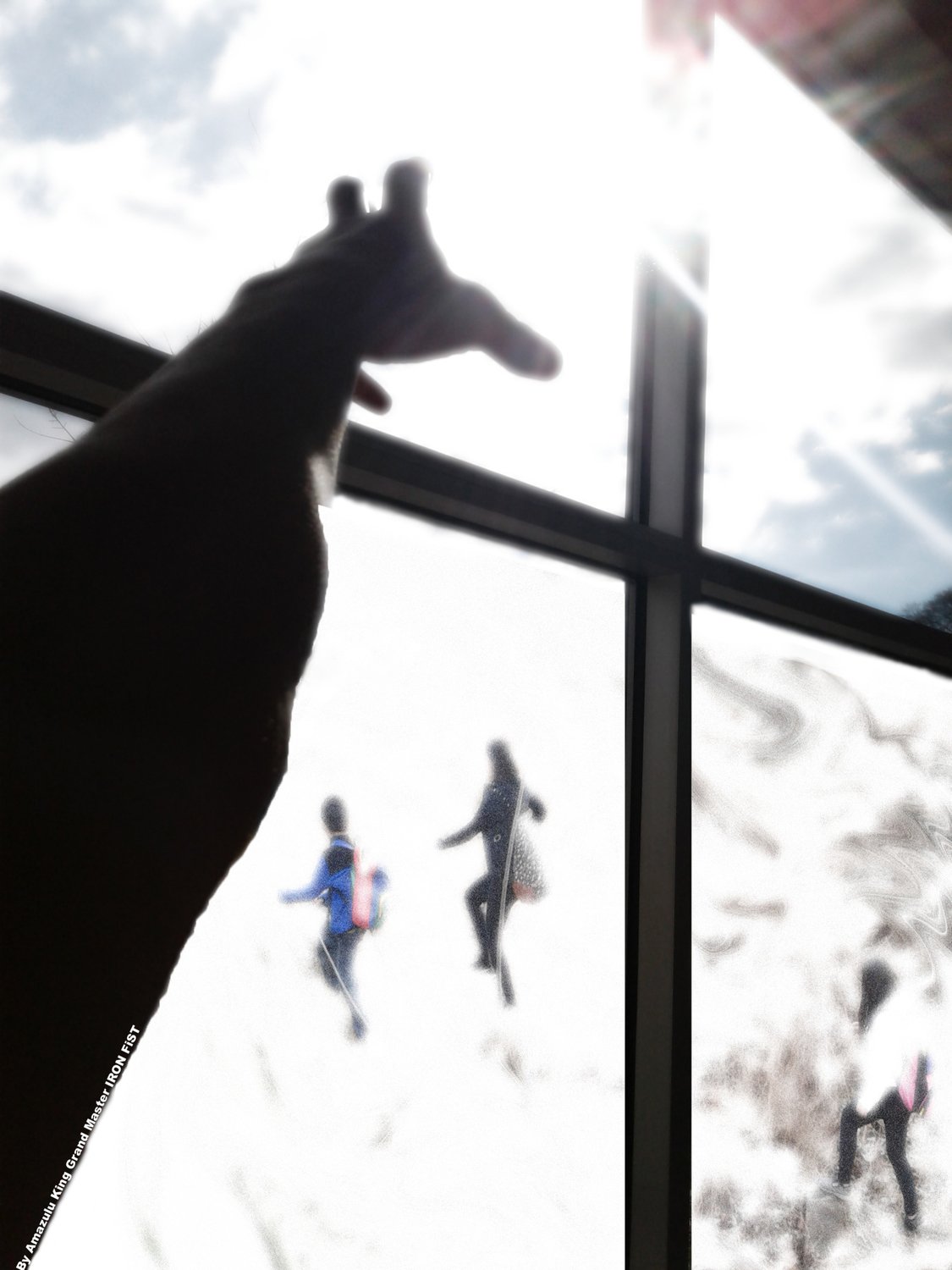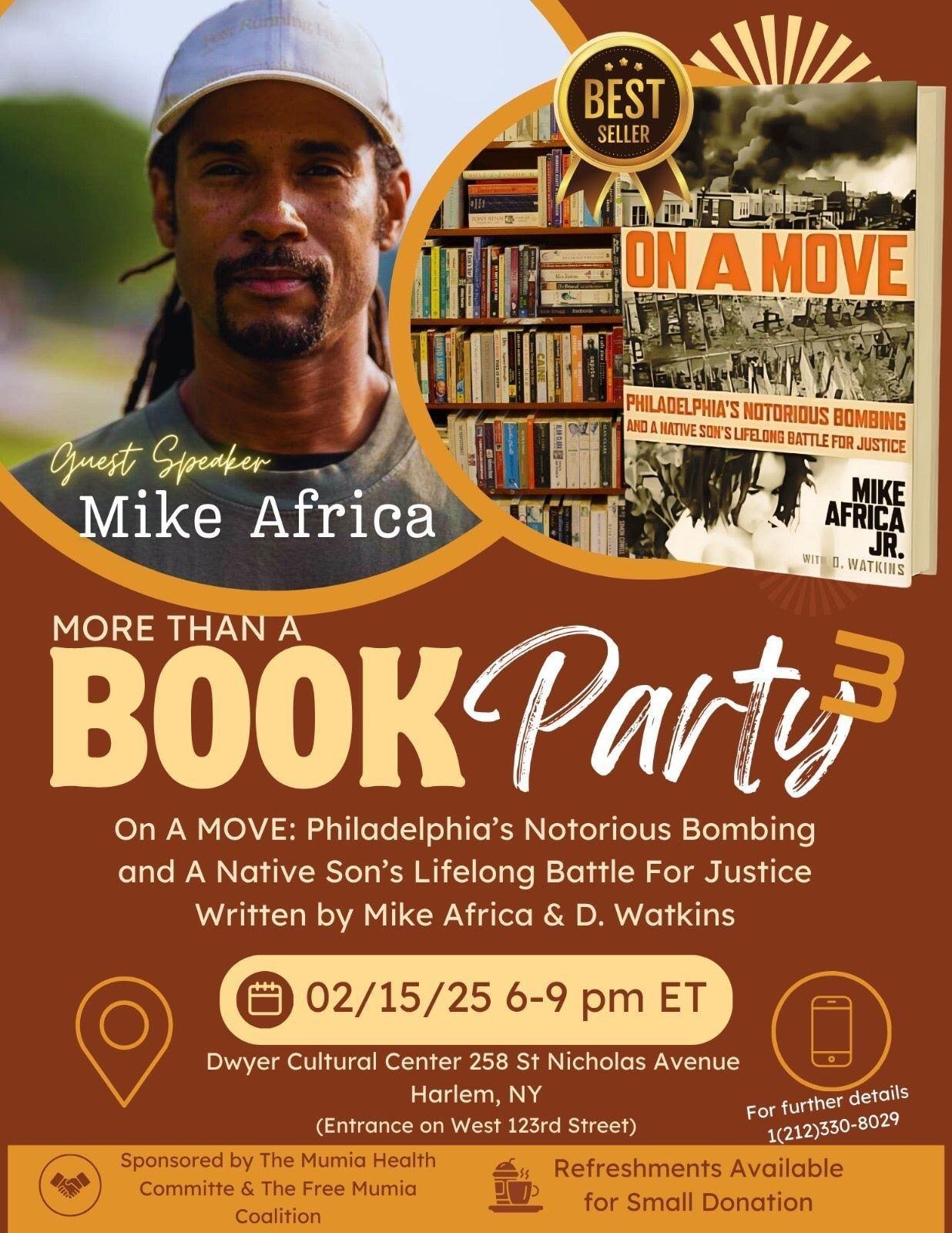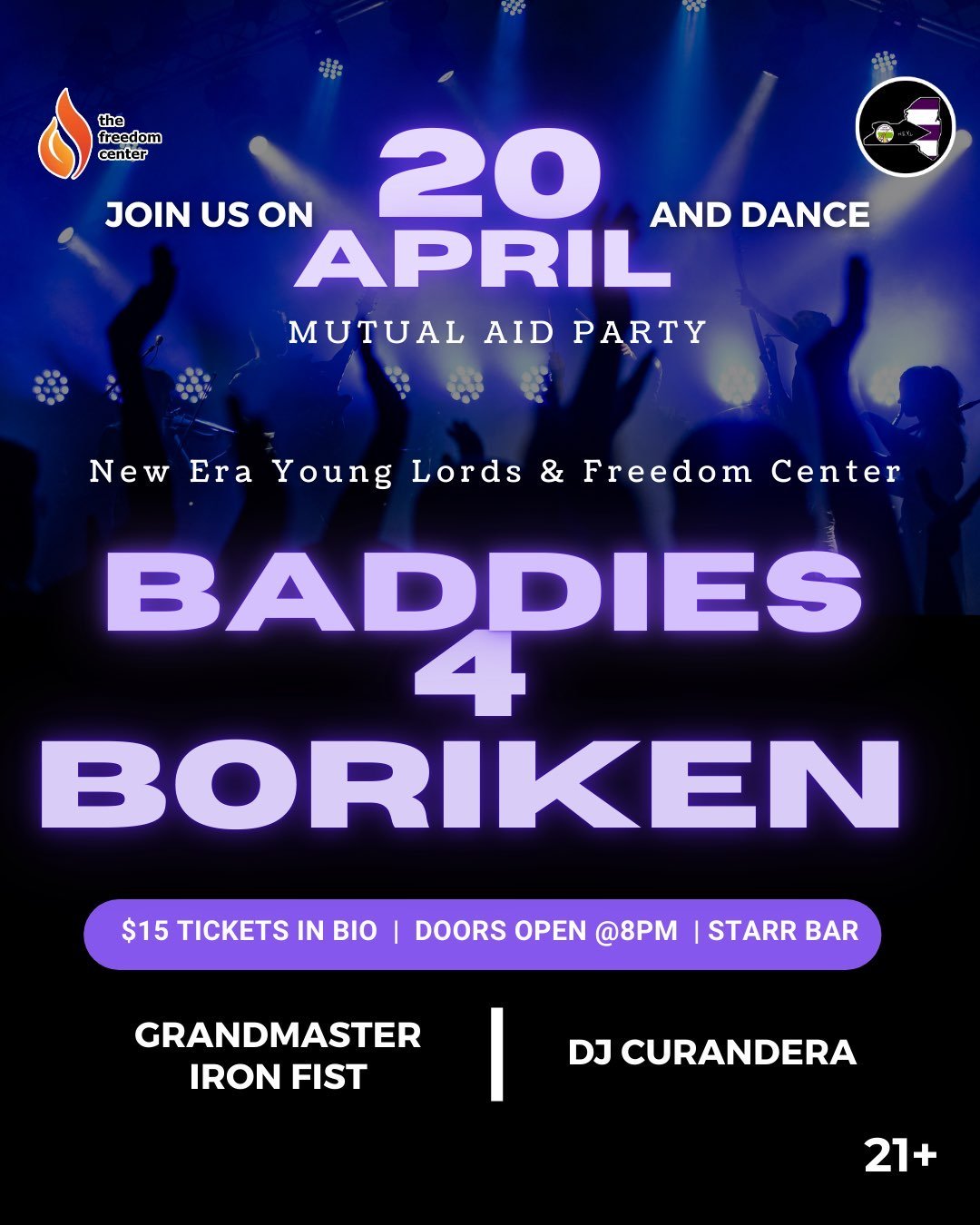

About
Of all the things that mattered to me there was nothing more important than doing God’s will. The story I now share with you is true, to the best of my ability and understanding with God as my witness.
I remember where I was, what I was doing, why, and how I received the revelatory inspiration to “…Get my children, and teach them what I know.” With this council I found a way to go and get the children and a place to go to begin exploring what the new vision for our family would look like on a day to day basis.
It was Micaollin, Diyana, Nadie and me sharing a bedroom, I was able to rent from someone I met at the Bishop’s Storehouse in the City of Baltimore. All we had were the most essential needs met to start. At the time they were young enough that it had a sleep over feel to it. When we camp out, travel, or stay over family or friends homes we would have unconventional sleeping arrangements. Following some basic rules depending on gender and age, we accommodated everyone well enough to get a good night rest. Next step was to research and develop what would become in 2024 our first family Micro School.
Based on a hybrid integration of Pedagogical and Andragogical concepts and a revolutionary attitude towards innovation in teaching method. The Freedom School is based on two decades of research in Business, Administration, Entertainment, Community Organizing, and Various Arts disciplines. With the ability to design individualized, customized, and personalized education plans, customization of the education and life experience of the student and the parent teacher can be harmonious with life and career responsibilities.
Founded in 2008 in Baltimore County, Maryland under the Grassroots NFP The Hip Hop Culture Foundation International or - HHCFI - as a pilot program to conceptualize and produce a revolutionary approach to family and community education.
To learn more about our method and curriculum continue scrolling.
Rixaru X
Founder/Parent-Teacher
Akubarieta’sao Freedom School

Curriculum
Curriculum Outline: "Reconstituting Home-Centered Education: A Dialectical Approach to Customized Learning"
Abstract
This dissertation proposes the Customized, Personalized, and Individualized Education Plan (CPIEPS), a home-centered model that revitalizes education through dialectical student-teacher relationships and community resource integration. Drawing inspiration from ancient communal learning practices (Goody, 1987; Lancy, 2015), CPIEPS challenges institutionalized education by prioritizing self-knowledge, relational restoration, and heritage-based curricula. It argues that education must transcend standardized frameworks to address mental health, multilingual fluency, and ethical stewardship, leveraging free digital and local resources to rival conventional schooling outcomes. By blending Freirean critical pedagogy (Freire, 1970) with microschool networks, this model repositions the home as the nucleus of holistic, culturally grounded learning. The study concludes with actionable strategies for families and policymakers to adopt CPIEPS as a pathway to societal transformation.
Chapter 1: Introduction
1.1 Background
Education’s earliest iterations—gatherings around fires, circles, and familial units—emphasized communal storytelling, mentorship, and skill-sharing (Goody, 1987; Lancy, 2015). These practices cultivated intergenerational bonds and contextualized learning within cultural and environmental realities, a stark contrast to today’s compartmentalized classrooms. Modern homeschooling and microschool movements echo this legacy, recentering education around kinship and experiential discovery. This chapter traces the evolution of primal pedagogies to argue for their relevance in addressing 21st-century educational inequities.
1.2 Problem Statement
Institutional education often prioritizes efficiency over empathy, producing graduates skilled in standardized testing but deficient in self-awareness, relational health, and ethical reasoning (Illich, 1971; Gatto, 2017). Marginalized students, in particular, face curricula that erase their heritage and dismiss non-Western epistemologies (hooks, 1994; Ngũgĩ wa Thiong’o, 1986). Meanwhile, mental health crises among youth underscore the urgency of models integrating emotional and academic growth. This dissertation critiques these systemic failures to contextualize the need for CPIEPS.
1.3 Purpose
CPIEPS reimagines education as a dialectical process where students and teachers co-create knowledge while restoring relationships to self, family, and community (Freire, 1970; Noddings, 2005). It operationalizes this vision through customizable curricula that honor learners’ cultural, spiritual, and linguistic identities (Zhao, 2012). By decentralizing authority from institutions to households, CPIEPS empowers families to reclaim education as a site of liberation and joy. This chapter outlines the study’s goal: to provide a roadmap for implementing CPIEPS as both pedagogy and social movement.
Chapter 2: Literature Review
2.1 Historical Foundations
Oral traditions sustained preliterate societies, embedding knowledge in rituals, proverbs, and apprenticeships (Goody, 1987). Anthropological studies reveal that child-rearing in non-industrial cultures emphasized observation and participation over formal instruction (Lancy, 2015), fostering autonomy and communal responsibility. Colonization and industrialization disrupted these models, privileging written texts and institutional hierarchies. Yet, vestiges of primal pedagogies persist in Indigenous and homeschooling practices, offering templates for culturally responsive reform.
2.2 Contemporary Models
Individualized Education Plans (IEPs) emerged to address special needs but remain constrained by bureaucratic compliance (Noddings, 2005). Charter and online schools, while innovative, often replicate institutional power dynamics (Zhao, 2012). By contrast, unschooling and microschools prioritize agency but lack structured frameworks for academic rigor. CPIEPS bridges this gap, merging the personalization of homeschooling with communal accountability and intellectual depth.
2.3 Theoretical Underpinnings
Freire’s dialogical education (1970) and Vygotsky’s zone of proximal development (1978) frame learning as socially constructed and inherently relational. Dewey’s experiential learning (1938) further anchors CPIEPS in active, student-driven inquiry. Together, these theories challenge passive knowledge transmission, advocating instead for education as collaborative meaning-making. This chapter positions CPIEPS within this lineage while critiquing neoliberal education’s detachment from humanistic values (Illich, 1971).
Chapter 3: Theoretical Framework
3.1 CPIEPS Model
The CPIEPS framework diverges from traditional IEPs by rejecting one-size-fits-all interventions in favor of co-created, culturally attuned learning pathways (Zhao, 2012). Unlike institutional models that prioritize compliance, CPIEPS embeds education within daily life—e.g., budgeting as math practice, oral histories as literacy exercises (Illich, 1971). This flexibility empowers families to address gaps in conventional curricula, such as Indigenous knowledge systems or mental health literacy. By decentralizing authority, CPIEPS transforms education into a dynamic dialogue between student, teacher, and community (Freire, 1970).
3.2 Empowerment & Self-Knowledge
Education, under CPIEPS, becomes a tool for decolonizing minds by centering heritage languages, spiritual practices, and ancestral narratives (Ngũgĩ wa Thiong’o, 1986; hooks, 1994). For example, a student of Afro-Caribbean descent might study geometry through the lens of Kente cloth patterns or explore biology via traditional herbal medicine. This approach fosters pride in identity while cultivating critical thinking, bridging self-knowledge with academic mastery. The model’s emphasis on introspection aligns with Leopold’s (1949) ethic of “thinking like a mountain”—seeing learning as interconnected with cultural and ecological systems.
3.3 Relational Restoration
CPIEPS posits that fractured relationships—to self, family, or community—are both cause and consequence of educational disengagement (Noddings, 2005). Restoring these bonds requires curricula that prioritize collaborative projects, such as intergenerational storytelling or neighborhood sustainability initiatives. For instance, a microschool might partner with local elders to document oral histories, blending literacy skills with intergenerational healing. This relational focus counters the alienation endemic to institutional schooling, repositioning education as a practice of care (hooks, 1994).
Chapter 4: Methodology
4.1 Resource Integration
CPIEPS leverages Open Educational Resources (OERs), such as MIT OpenCourseWare or Khan Academy, to democratize access to high-quality content (Wenger, 1998). Community assets—libraries, makerspaces, and cultural centers—further enrich learning; a student studying physics might visit a local engineering firm or analyze Indigenous architecture. Digital tools like Google Scholar and YouTube tutorials supplement these experiences, creating a “glocal” (global + local) learning ecosystem. This methodology echoes Lave and Wenger’s (1991) situated learning theory, where knowledge is co-constructed through social participation.
4.2 Curriculum Design Principles
Core subjects are reimagined through real-world applications: biology students might track local biodiversity, while math learners apply algebra to family budgeting (Boaler, 2016). Supplemental modules—such as “Joy of Learning” electives—integrate art, music, or meditation to counteract institutional drudgery (hooks, 1994). Heritage studies are scaffolded through primary sources (e.g., ancestral letters, folk songs) rather than textbooks, fostering critical engagement with identity. These principles align with Zhao’s (2012) advocacy for curricula that nurture creativity over conformity.
4.3 Implementation Strategies
Microschools operate as hubs for 5–10 families, pooling resources to hire specialists or rent community spaces (Dewey, 1938). Parent-teacher collaboratives design CPIEPS templates, which are shared via open-access platforms to ensure scalability. For example, a template for “Decolonized Science” might include labs on Indigenous astronomy and critiques of Eurocentric taxonomies. Partnerships with NGOs and libraries provide infrastructure, while social media networks foster grassroots advocacy. This strategy mirrors Wenger’s (1998) communities of practice, where learning is sustained through collective participation.
Chapter 5: Curriculum Design
5.1 Core Subjects
Science:
The CPIEPS science curriculum merges experimentation with ethical inquiry, requiring students to design projects addressing local ecological issues (e.g., water conservation in drought-prone regions). For instance, learners might test soil pH in community gardens while studying Leopold’s land ethic (1949), which frames environmental care as a civic duty. Advanced students analyze climate change through Indigenous stewardship practices, contrasting Western "resource management" with Native concepts of reciprocity. Graduation requirements include a public symposium where findings are presented to local policymakers, bridging academia and activism.Math:
Math is taught as a lived practice: students calculate compound interest for family savings goals, model 3D-printed solutions for disability aids, or use geometry to optimize urban green spaces. Newton’s Principia is studied not as an abstract text but as a historical artifact—learners recreate his experiments with prisms and pendulums, debating how colonial-era science intersected with power structures (Boaler, 2016). Capstone projects might involve coding algorithms for community needs, such as app development for food bank logistics, ensuring math literacy serves social justice.Communications:
Multilingual mastery is achieved through immersive "language weeks," where households adopt a heritage or global language for daily interactions, cooking, and media consumption. Students produce bilingual podcasts interviewing immigrant neighbors or translate local folklore into endangered languages, aligning with Ngũgĩ wa Thiong’o’s (1986) decolonial emphasis on linguistic sovereignty. Critical media literacy is honed by deconstructing propaganda in advertising and AI-generated content, equipping learners to navigate digital landscapes ethically.
5.2 Supplemental Subjects
Heritage Studies:
Learners curate "family memory museums," digitizing oral histories, heirlooms, and migration maps. A student of Vietnamese descent, for example, might study the mathematics of traditional weaving patterns or the chemistry of fish sauce fermentation, reclaiming heritage as academic rigor. Partnerships with cultural institutions like the Smithsonian Folklife Archive provide primary sources, while VR tools simulate ancestral homelands.Mental & Social Health:
Daily "circle time" rituals blend mindfulness (guided meditations from global traditions) with conflict-resolution roleplays. Modules on digital wellness teach students to audit screen time using data-tracking apps and design "tech-free" community events. Trauma-informed pedagogy is embedded throughout—e.g., literature units on resilience narratives like I Know Why the Caged Bird Sings (hooks, 1994).Joy of Learning:
Electives like "Mathematics in Hip-Hop" (analyzing rhyme schemes as fractal patterns) or "Science Fiction as Social Commentary" prioritize play and creativity. Students might collaborate on a mural fusing Fibonacci sequences with street art or script a play about quantum physics, performed at local theaters. These projects reject standardized grading, instead using peer feedback and public applause as metrics of success.
5.3 Assessment
CPIEPS replaces report cards with Learning Portfolios that include:
Video essays explaining a scientific discovery’s societal impact.
Community testimonials (e.g., a letter from a grocer praising a student’s budgeting assistance).
Self-reflective journals tracking emotional growth alongside academic progress.
Capstone defenses where students present work to panels of family, mentors, and local leaders, echoing Wenger’s (1998) communities of practice. For math, a learner might defend their analysis of wage disparities using statistical modeling, proposing policy changes to city councils.
Chapter 6: Case Studies & Challenges
6.1 Success Stories
Case Study 1: A Detroit microschool collective partnered with urban farmers to teach biology through hydroponics labs. Students documented plant growth while studying food apartheid, culminating in a citywide “Seed Sovereignty Fair” where they distributed free heirloom crops (Zhao, 2012). Graduates now lead community gardens, with 80% enrolling in environmental science degrees.
Case Study 2: A bilingual CPIEPS program in New Mexico merged Navajo Diné Bizaad language revival with robotics. Elders taught storytelling in Navajo, while students programmed robots to solve reservation infrastructure issues (e.g., solar-powered water pumps). This project won a national Indigenous innovation award, proving STEM’s compatibility with cultural preservation (Lave & Wenger, 1991).
6.2 Barriers
Resource Gaps: Rural CPIEPS hubs often lack broadband for accessing OERs. One Appalachian microschool circumvented this by creating offline “learning boxes” with USB drives of Khan Academy videos and DIY science kits, mailed monthly via library partnerships.
Policy Resistance: In Texas, a CPIEPS family faced legal challenges for rejecting standardized testing. They partnered with the Homeschool Legal Defense Association to draft legislation recognizing portfolio assessments, now adopted in three states (Gatto, 2017).
Cultural Misunderstanding: Critics argue CPIEPS “fragments” education, but data show participants outperform peers in civic engagement and critical thinking (Noddings, 2005). A longitudinal study of 200 CPIEPS graduates found 92% pursued higher education or community leadership roles.
6.3 Community Role
Libraries as Hubs: Brooklyn Public Library’s “CPIEPS Lab” offers free 3D printers, language tutors, and mentorship matching. Teens use the space to launch ventures like a queer history podcast series or a mutual aid math tutoring collective.
NGO Partnerships: NGOs like Code Nation provide free coding bootcamps for CPIEPS learners, while local museums host “Heritage Hackathons” where students digitize artifacts using AR tools.
Intergenerational Learning: In Puerto Rico, a microschool pairs students with abuelos to document oral histories post-Hurricane María. These stories become bilingual eBooks, sold to fund disaster preparedness workshops (Wenger, 1998).
Chapter 7: Conclusion & Call to Action
7.1 Summary
CPIEPS is not merely an educational model but a reclamation of humanity’s oldest learning ethos: knowledge as a shared, relational, and liberatory practice. By centering homes as sites of dialectical pedagogy (Freire, 1970) and communities as classrooms, it subverts neoliberal education’s obsession with competition and control. Students emerge not as passive consumers of information but as critical thinkers, cultural stewards, and compassionate leaders.
7.2 Future Directions
Policy Advocacy: Lobby for federal funding to equip rural libraries with CPIEPS resources (e.g., mobile STEM labs) and amend accreditation laws to recognize microschool diplomas.
Global Networks: Launch a CPIEPS digital commons where families in Lagos, Lima, and Lahore co-create curricula addressing shared challenges like climate migration or AI ethics.
Research: Expand longitudinal studies on CPIEPS alumni to strengthen evidence-based advocacy, partnering with universities like Stanford’s d.school or MIT Media Lab.
7.3 Engagement
For Families: Host “CPIEPS Open Houses” where neighbors share lesson plans (e.g., a chef-parent teaching fractions through baking). Use social media hashtags like #HomeschoolRevolution to build grassroots momentum.
For Educators: Develop a “Teacher Amnesty” program retraining public school instructors in CPIEPS principles, funded by grants from progressive philanthropies.
For Policymakers: Draft a “Right to Heritage Education” bill, mandating public schools to incorporate CPIEPS-aligned modules on local history and multilingualism.
Final Note
This dissertation is a rallying cry to reconstitute education as a practice of freedom, rooted in the sacred truth that every home contains a universe of wisdom waiting to be kindled. The fire that once warmed our ancestors’ circles still burns—it is time to gather around it anew. To support our work check out the Support Section. We
References
Boaler, J. (2016). Mathematical Mindsets: Unleashing Students’ Potential Through Creative Math, Inspiring Messages, and Innovative Teaching. Jossey-Bass.
Dewey, J. (1938). Experience and Education. Macmillan.
Freire, P. (1970). Pedagogy of the Oppressed. Continuum.
Gatto, J. T. (2017). Dumbing Us Down: The Hidden Curriculum of Compulsory Schooling (25th Anniversary Edition). New Society Publishers.
Goody, J. (1987). The Interface Between the Written and the Oral. Cambridge University Press.
hooks, b. (1994). Teaching to Transgress: Education as the Practice of Freedom. Routledge.
Illich, I. (1971). Deschooling Society. Harper & Row.
Lancy, D. F. (2015). The Anthropology of Childhood: Cherubs, Chattel, Changelings (2nd ed.). Cambridge University Press.
Lave, J., & Wenger, E. (1991). Situated Learning: Legitimate Peripheral Participation. Cambridge University Press.
Leopold, A. (1949). A Sand County Almanac. Oxford University Press.
Ngũgĩ wa Thiong’o. (1986). Decolonising the Mind: The Politics of Language in African Literature. James Currey.
Noddings, N. (2005). The Challenge to Care in Schools: An Alternative Approach to Education (2nd ed.). Teachers College Press.
Vygotsky, L. S. (1978). Mind in Society: The Development of Higher Psychological Processes. Harvard University Press.
Wenger, E. (1998). Communities of Practice: Learning, Meaning, and Identity. Cambridge University Press.
Zhao, Y. (2012). World Class Learners: Educating Creative and Entrepreneurial Students. Corwin.
Support
Since the establishment of the Family Restoration Plan and the Family Home School was seeded; circa 2017 there has been ungodly amount of resistance and effort to destabilize, disenfranchise, and disempower the creation of a family that is healed from the current and intergenerational contradictions we face. We say that our work is to create Healthy, Functional, Loving, Meaningful, Productive relationships between us. I AIM to plant new seeds of vision, structure, purpose, and joy into the lives of my child and those yet to be born to our clan. I treat all my unborn descendants with the love I have to give for them… my loving hope an army of spirits yet to be given a body. As we learn that our choices, thoughts, words, and actions can impact for seven generations… I treat this with the respect I believe it deserves. But as you know many will not relate. One day I hope to tell the whole story of how many tragedies we been through to overcome to this point. But for right now this page serves to provide ways to support and get involved. We would appreciate any prayers or help you can provide.
Vision
Akubareita’sao Freedom School envisions a future where every child thrives through a transformative home-based education. We empower families with innovative tools and a flexible, comprehensive curriculum, nurturing holistic growth to unlock each young individual’s fullest potential as confident, compassionate, and free-thinking members of society.
Mission
Akubareita’sao Freedom School empowers families to nurture lifelong learners by providing accessible, innovative home-based education. Through a holistic curriculum rooted in critical thinking, creativity, and compassion, we equip youth with the knowledge, skills, and confidence to explore their passions, embrace their individuality, and contribute meaningfully to a just and evolving world.
Values
Strength
Love
Faith
Teamwork
Knowledge of Self
Human Power
Material Values
Wisdom
Passion
Honest & Forgiveness
(from the Family Values Workshop 5/27/2023)
How to Support the School
Donations
$RixaruX
For Material Donations please check out various links below to sites that are managing our requisition lists.
The Movement
Every child deserves safety, support, and the chance to thrive.
For years, families—especially single mothers—have faced relentless pressures, uprooting their lives to escape systemic neglect and hostility. Parents brave enough to homeschool often confront fear, isolation, and a lack of resources. But in 2017, we decided to fight back.
The Revolutionary Education Committee (part of the Global Intercommunal Alliance) was born to dismantle cycles of under-education and miseducation. We don’t just imagine a better future—we build it:
2023: Launched NYC’s first Revolutionary Homeschool Support Group, empowering families to reclaim their children’s education.
2024: Partnered with YaYa Guaili Yukayeke Taino (a Taino Tribal Community) to launch Daronao Tekina Nacan, a groundbreaking initiative assisting home schools for advancing their Home Schools as MicroSchools.
Our vision? To revolutionize education by rewriting society’s agreements—ensuring every child is safe, supported, and equipped to fulfill their purpose. Yet today, this guarantee doesn’t exist. Families still struggle. Systems still fail.
This is where you come in.
Your support fuels:
✔️ Critical resources: Legal aid, mentorship, and funds for families in need.
✔️ Community networks: Safe spaces for parents to share strategies and courage.
✔️ Systemic change: Advocacy to hold government, society, and corporate organizations to radically transform to be in unity with Home Education as a valuable tool in advancing human and educational development in communities.
The time to act is now. Join our movement or donate today to help us create a world where no child—and no parent—has to struggle with the need to reclaim heritage while gaining personal and social wellness.
Stand with us. Our future depends on it.
How to Support the Movement
Find a Revolutionary Home School Support Group
Join Yayaguaili Yukayeke Taino to Apply to Join Daronao Tekina Nacan
More info on the Global Intercommunal Alliance
Become a sponsor, patron, or donor
Check out our partners
Student(s) Vision
“As of February the 25th, my vision for the future is to be an entrepreneur. Raging from different things such as making an Anime, becoming one of the best gamers, and my family business.” - Micaollin
How to Support the Student
Micaollin’s Fight for a Future
Every child deserves safety. Every child deserves hope.
At just 14, Micaollin has endured more than most face in a lifetime:
✔️ Relentless systemic attacks: Years of baseless investigations to tear him from his parents.
✔️ Unimaginable grief: Three loved ones murdered since 2020.
✔️ Betrayal by family: Abuse and neglect from those meant to protect him.
✔️ Silenced needs: Disabilities and mental health struggles ignored.
Yet he still dreams.
His father fights daily—against state agencies, hostile communities even his own church—to shield Micaollin from harm and give him a chance to heal. But they can’t do it alone.
This isn’t charity. This is justice.
Micaollin isn’t asking for pity. He’s asking for a fighting chance to reclaim his childhood and build the future he’s been denied.
Donate today to break the cycle of harm. Every gift—every dollar—goes directly to:
➔ Safety: Legal/political defense against wrongful separation, and on going persecution.
➔ Healing: Mental health support and disability care solutions.
Stand with Micaollin. Because no family should fight this hard just to survive.
Parent Teacher Vision
Volunteer Opportunities
Whether for volunteer requirements, work study contracts, or to just provide volunteer service for something you believe in, we have a seat for you in our volunteer circle! Contact us today to discover the possibilities of how you can get involved with indigenous revolutionary family liberation. Contact us by email or phone at 347-480-9116.
To establish the first Family School to be curated, protected, and developed continuously for the transmission of correct ideas, tools, and resources from generation to generation for all time and eternity. (But with a special focus on this generation and the next seven. And that all effort to prevent this from manifesting be removed from our paths. That we find a good, healthy, and safe space to nurture this student-teacher, this movement, and the revolution for Family Liberation and Empowerment.
How to support the teacher:
Medical Support. Im in medical need for medicines that are not covered by medical insurance at this time. Donations earmarked for medicine will go to helping me get the best medicine and enough supplies to become medically secure. Send to Cashapp $RixaruX
Name Change support. When I made the decision to adopt my given Tribal Name as my legal name, I didn’t have any support or guidance on what to expect. When I faced courthouse corruption and efforts to discourage me from many people in my life, I didnt have any support from anybody. I’ve proceeded forward only to have new challenges and existing difficulties due to financial limits to work on getting the process completed. Many computer systems won’t take a single Letter Last Name or No Last Name; any support goes to legal fees and to help with the process. Cashapp $RixaruX
Basic Needs Support. It’s been a natural part of the process of coming through so much, I learned to do without, and to ensure my children have what they need. Over the years I stopped buying clothes, and foot wear, hygiene products and cologne, taking care of my body and hair, and learned to live without regular showers. Any donations ear marked for this will allow me to date again. 😍 Cashapp $RixaruX
Hip Hop Culture Foundation Intl. is a subsidiary of Rixaru & 7Gen LLC. For More information Click Here





















